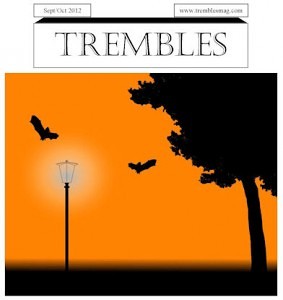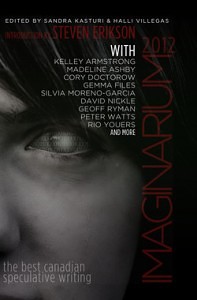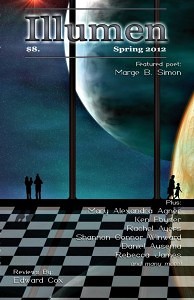Pictures! Just cause. I took these at Jo’s work a couple weekends ago:
So, I need to write a blog entry this week, but I haven’t got the time. My solution? This is an essay I wrote for school. I’m going to share it in lieu of actually writing something fresh. I apologise, but it seems kind of appropriate because last week I edited a blog entry and handed it in as an essay for the same course LOL
Building a Reputation
So, you want to be a writer. I’ve got some bad news for you—getting published is easy, the tricky part to building a writing career is developing your reputation. Remember, you’re not just selling a story, you’re selling an idea about who you are. Each publication is a brick in the wall that will grow to become your brand and represent you as an author and the mortar between those bricks is your reputation.
Not only do you need to build a reputation with readers, but you will find that establishing one with editors will also affect your career. Every communication you have with an editor will flavor their impression of you. It’s important to set the tone of your future relationship in your very first email to a new editor. Make sure they know you aren’t doing anything as demeaning as submitting your work for consideration, rather you are offering them the use of it. Emphasize that you are doing this as a personal favor to them because your work is vastly superior to everything else they have published to date (even your mother thinks so, and she doesn’t usually read the genre you write in).
For example, it’s good to note that what is expected in professional correspondence is always changing. “Dear Mr. (or Ms.) Editor” may have been the traditional way to begin correspondence once upon a time but nowadays with the widespread use of email and texting, it is perfectly acceptable to start your email without a salutation. You may also skip the complimentary closing. Why bother with obsolete niceties? They take precious seconds out of your day.
If you do decide to include a salutation and address the editor by name, it doesn’t actually matter if you spell their name correctly, so long as they can figure out who you meant. Gender, also, doesn’t matter. If you address a letter to Mr. Doe and then discover they are actually Ms. Doe, at least you got the last name correct. In baseball batting .500 is fantastic. The same applies in publishing. Likewise, while it’s good to mention the name of the publication when you submit or query, if it has any unusual spellings, feel free to ignore them or, better yet point out the editor’s mistake in choosing to spell their magazine or publishing house the way they have.
You don’t need to bother making sure your work fits the genre of the publication you’re offering it to because it is so well-written any editor worth their salt will be happy to publish it regardless. If you happen to find an editor who isn’t willing to accept it because it “doesn’t fit their market” they obviously don’t know what they are talking about. Make sure you reply to their rejection letter and tell them so as emphatically as possible.
What’s more, don’t worry about following the editor’s guidelines for formatting submissions. You’ve formatted your story the way you have for a reason and they are called submission guidelines, which means they are more like suggestions than rules. On a related note, don’t worry about fixing typos or revising before you send your work in. That is the editor’s job. If you made it perfect before you sent it to them, what would they do to earn their pay cheques?
Finally, unless you want to be known as a pushover, once editing on your piece has begun it is vital you make sure the editor knows this is not an equal partnership. You are the boss. Make them fight for every comma they want to alter and absolutely refuse to budge on changing anything bigger than a single word or punctuation mark. It’s at this stage that phrases like “That’s my personal writing style” will serve you very well.
You can’t let editors mess around with your work or your style will be changed until it’s unrecognizable. Editors may say things like “This will make for a stronger story” or “But it’s nonsensical when it’s written this way” but don’t believe them. They aren’t trying to help you improve your work, they are dumbing it down and making it like everyone else’s.
You are not like everyone else. You are unique, special; like a snowflake. When you stick up for yourself, people, both readers and editors, will respect you. Don’t let yourself get pushed around and remember that no matter how many years of experience an editor has, when it comes to your work, you are the authority.
By following these tips you’re guaranteed to make an impression on the editors who work for you. That’s what you want, for people, editors and readers alike, to have an instant visceral reaction when they hear your name. That is what will help bind your work together and build a career, brick by brick, that will be beyond compare.
My grade, in case you are curious (and who wouldn’t be?) was 70% because my teacher couldn’t tell if I was being sincere in my advice or not. My original draft made mention about how editors talk to one another and compare notes, maybe I ought to have left that in to help clarify my position. Oh well. Next time I’ll make my tone a little more obviously sarcastic 😉
Also, in case you’re curious. Yes. Every example up there has happened to me when I’m wearing my Editor hat.
Lastly, in writing-related news, I have a couple zombie apocalypse poems up at Dark Chaos this week.








